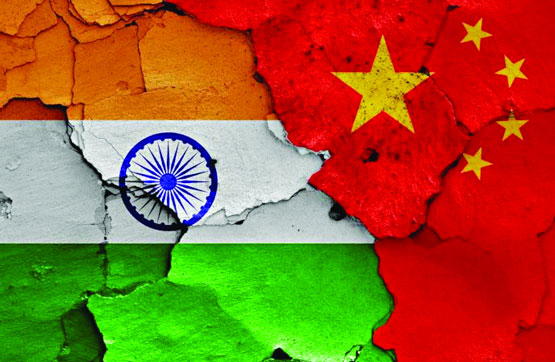Understanding India’s concerns over China
BRICS expansion plans
Staff Correspondent: India, along with Brazil, is showing caution toward the push to expand the BRICS bloc, which includes Brazil, Russia, India, China, and South Africa.
While there is an ongoing debate about the potential benefits and drawbacks of enlarging the bloc, India is wary of losing influence within a larger grouping, especially to China.
The upcoming BRICS leadership summit in Johannesburg will include discussions on the admission of new members such as Bangladesh, Argentina, Egypt, Indonesia, the United Arab Emirates, Saudi Arabia, Algeria, and Iran.
In a recent report by Maria Siow, a China-based correspondent and East Asia analyst for the South China Morning Post (SCMP), India’s concerns were highlighted.
India’s perspective
Indian Foreign Minister Subrahmanyam Jaishankar has emphasized that the expansion process is still a “work in progress” and that careful deliberation is needed to define the standards, criteria, and procedures for an expanded BRICS grouping.
In a South China Morning Post (SCMP) report, Oliver Stuenkel, an associate professor of international relations at Brazil’s Fundacao Getulio Vargas, highlights India’s concern about how much expansion aligns with its interests.
While China and Russia advocate for enlargement, India and Brazil are cautious about potentially losing influence within a larger bloc. Stuenkel notes that new members would likely join to be closer to China rather than Brazil or India.
India’s shifting alliances
India’s recent inclination towards closer ties with the West, evidenced by strengthened economic, defence, and technological cooperation with the US, Japan, Australia, and the European Union, indicates its outlier status within BRICS.
India’s active participation in the Quad security grouping, which aims to counter China’s growing influence, further highlights its alignment with Western powers.
Anu Anwar, a fellow at Harvard University, suggests to SCMP that given India’s evolving alliances, it is reasonable for other BRICS members to seek expansion to maintain the bloc’s relevance.
BRICS as alternative world order
While the BRICS countries share a desire to reform the existing international system, Günther Maihold, deputy director of the German Institute for International and Security Affairs, notes SCMP that creating a new world order primarily serves the interests of China and Russia.
Maihold highlights the significance of military alliances in building a new world order, something lacking among BRICS members. He believes an enlarged BRICS could generate internal rivalries, exacerbating existing tensions, such as those between China and India.
China’s growing influence
Shirley Ze Yu, a senior practitioner fellow at Harvard Kennedy School’s Ash Centre, emphasizes SCMP that an expanded BRICS would reflect China’s growing influence, as it already represents two-thirds of the bloc’s GDP.
Yu notes that an enlarged BRICS could establish China as a rule-setter within the bloc, carrying significant influence in the future.
Unlike Western blocs, BRICS countries do not share a common ideology but instead unite around the goal of reforming the international system to address the needs of emerging economies.
The role of NDB
The New Development Bank (NDB), established by the BRICS countries in 2015, aims to fund infrastructure development in emerging economies.
While the NDB has already granted loans worth $33 billion to various projects, its expansion could counter the influence of Western-dominated multilateral banks like the World Bank and the International Monetary Fund.
However, Anu Anwar cautions that the NDB’s assets and areas of operation currently only serve a supplementary role and cannot replace the World Bank and the IMF as global financial market regulators and stabilizers.
India’s reservations about the expansion of BRICS are rooted in its concerns about losing influence to China within a larger grouping.
While BRICS already wields significant influence in respective regions, an enlarged bloc could introduce internal rivalries and potentially divert attention from shared objectives.
The expansion of BRICS, particularly through the admission of new members, would reflect China’s growing influence and its aspirations to establish a new world order.
However, the impact of an enlarged BRICS and the potential role of the New Development Bank should be assessed carefully, considering their capacity to challenge Western-dominated institutions.
Rare Israeli airstrike in Beirut kills Hezbollah commander and more than a dozen others
International Desk: Israel launched a rare airstrike that killed a senior Hezbollah milita…








